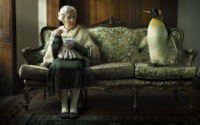Difference between revisions of "Etiquette"
(Created page with 'File:lighterstill.jpgright|frame ==Origin== Old French ''estiquette'' ). The primary sense in French is represented by English ''ticket'...') |
m (Text replacement - "http://" to "https://") |
||
| Line 3: | Line 3: | ||
==Origin== | ==Origin== | ||
Old French ''estiquette'' ). The primary sense in French is [[represented]] by [[English]] ''ticket'' n.1 (an adoption either of the [[word]] or the synonymous ''étiquet'' < ''estiquet'' ): in Old French the word chiefly denotes a [[soldier]]'s billet. The [[transition]] from the sense ‘ticket, label’ to that of ‘prescribed [[routine]]’ presents no intrinsic [[difficulty]], but its actual [[history]] in French is not very [[clear]]. | Old French ''estiquette'' ). The primary sense in French is [[represented]] by [[English]] ''ticket'' n.1 (an adoption either of the [[word]] or the synonymous ''étiquet'' < ''estiquet'' ): in Old French the word chiefly denotes a [[soldier]]'s billet. The [[transition]] from the sense ‘ticket, label’ to that of ‘prescribed [[routine]]’ presents no intrinsic [[difficulty]], but its actual [[history]] in French is not very [[clear]]. | ||
| − | *[ | + | *[https://en.wikipedia.org/wiki/18th_century 1750] |
==Definition== | ==Definition== | ||
*1: the [[conduct]] or procedure required by good breeding or prescribed by [[authority]] to be [[observed]] in [[social]] or official life | *1: the [[conduct]] or procedure required by good breeding or prescribed by [[authority]] to be [[observed]] in [[social]] or official life | ||
| Line 9: | Line 9: | ||
'''Etiquette''' is a [[code]] of [[behavior]] that delineates [[expectations]] for social [[behavior]] according to contemporary [[conventional]] [[norms]] within a [[society]], social class, or group. | '''Etiquette''' is a [[code]] of [[behavior]] that delineates [[expectations]] for social [[behavior]] according to contemporary [[conventional]] [[norms]] within a [[society]], social class, or group. | ||
| − | Like [[culture]], ''etiquette'' is a word that has [[gradually]] grown to become plural, especially in a multi-ethnic [[society]] with many clashing [[expectations]]. Thus, it is now possible to refer to "an etiquette" or "a culture", realizing that these may not be [[universal]]. In Britain, the word "etiquette" has been [[described]] as the one word that aptly describes life during the [ | + | Like [[culture]], ''etiquette'' is a word that has [[gradually]] grown to become plural, especially in a multi-ethnic [[society]] with many clashing [[expectations]]. Thus, it is now possible to refer to "an etiquette" or "a culture", realizing that these may not be [[universal]]. In Britain, the word "etiquette" has been [[described]] as the one word that aptly describes life during the [https://en.wikipedia.org/wiki/Victorian_era reign of Queen Victoria].[https://en.wikipedia.org/wiki/Etiquette] |
[[Category: Sociology]] | [[Category: Sociology]] | ||
[[Category: Anthropology]] | [[Category: Anthropology]] | ||
Latest revision as of 00:47, 13 December 2020
Origin
Old French estiquette ). The primary sense in French is represented by English ticket n.1 (an adoption either of the word or the synonymous étiquet < estiquet ): in Old French the word chiefly denotes a soldier's billet. The transition from the sense ‘ticket, label’ to that of ‘prescribed routine’ presents no intrinsic difficulty, but its actual history in French is not very clear.
Definition
- 1: the conduct or procedure required by good breeding or prescribed by authority to be observed in social or official life
Description
Etiquette is a code of behavior that delineates expectations for social behavior according to contemporary conventional norms within a society, social class, or group.
Like culture, etiquette is a word that has gradually grown to become plural, especially in a multi-ethnic society with many clashing expectations. Thus, it is now possible to refer to "an etiquette" or "a culture", realizing that these may not be universal. In Britain, the word "etiquette" has been described as the one word that aptly describes life during the reign of Queen Victoria.[1]
